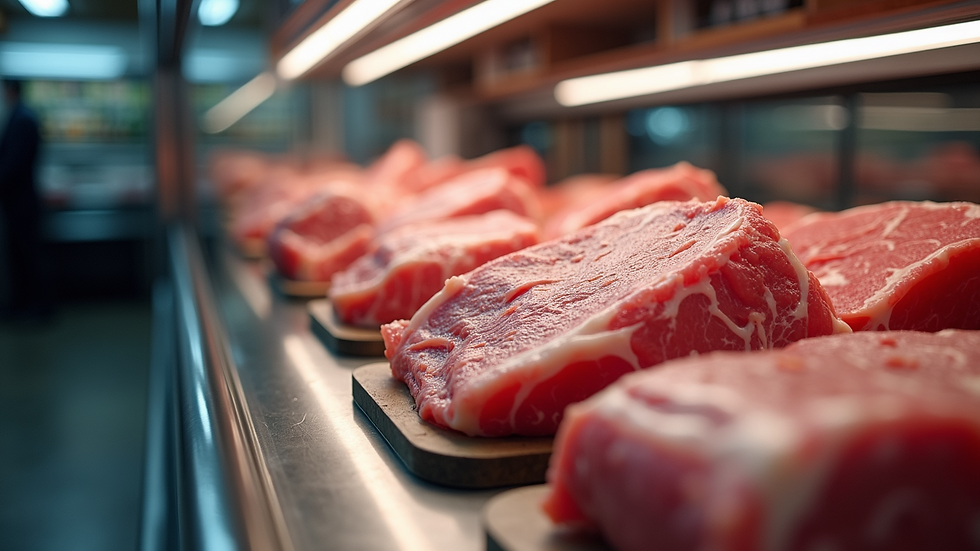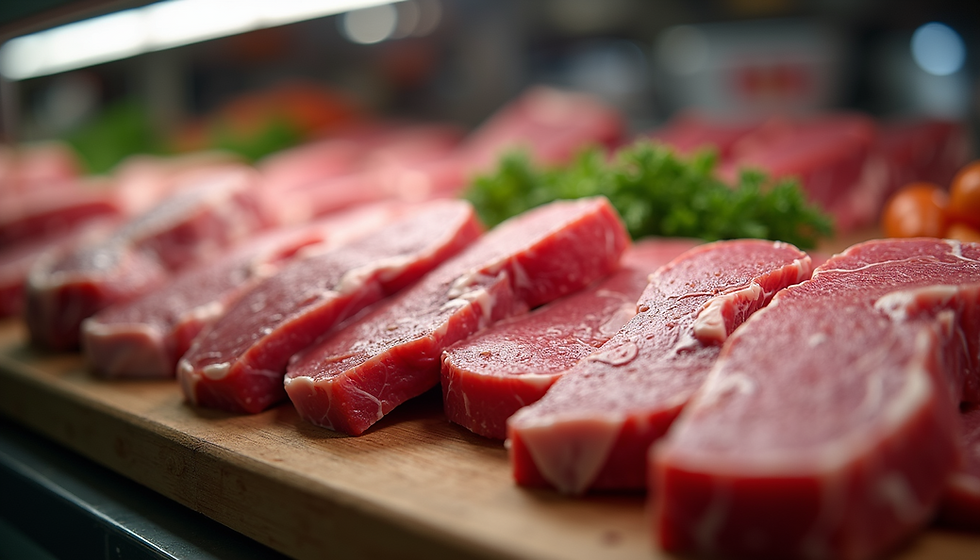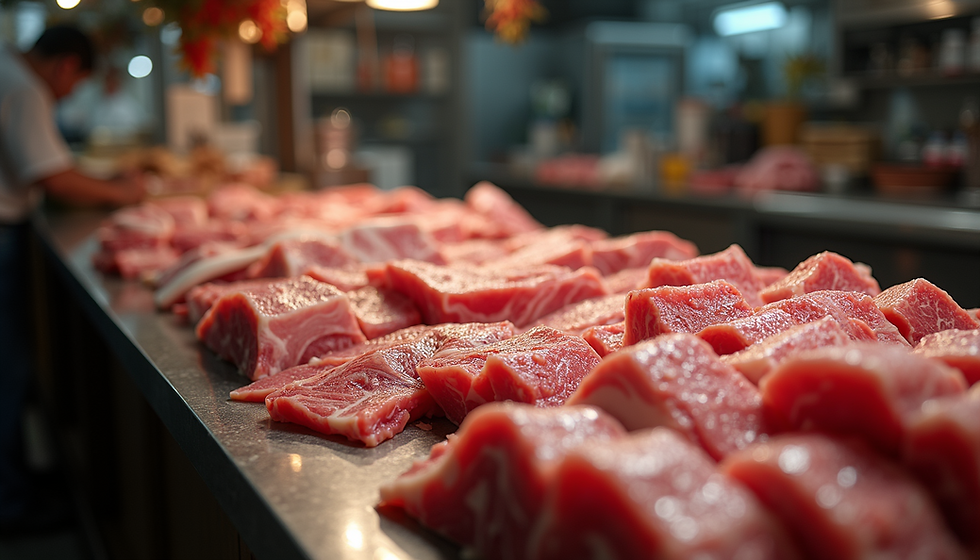The Importance of Quality in Wholesale Butchery Products
- Team @ Ezy Click Answers
- Sep 23, 2025
- 3 min read
When it comes to wholesale butchery, quality is not just a preference - it is a necessity. The products supplied in bulk to restaurants, retailers, and food service providers must meet high standards to ensure customer satisfaction, safety, and profitability. Quality in wholesale butchery products affects everything from taste and texture to shelf life and food safety compliance. This article explores why quality matters so much in wholesale butchery and how businesses can ensure they receive the best products.
Why Quality Matters in Wholesale Butchery
Quality in wholesale butchery products directly impacts the end consumer’s experience. Poor quality meat can lead to complaints, returns, and loss of business. High-quality meat, on the other hand, enhances flavour, tenderness, and appearance, which are critical for chefs and retailers who want to impress their customers.
Wholesale buyers must consider several factors that define quality:
Freshness: Fresh meat has a better texture and flavour. It also lasts longer, reducing waste.
Cut precision: Proper butchery techniques ensure consistent portion sizes and minimal waste.
Traceability: Knowing the source of the meat helps guarantee ethical and safe production.
Hygiene standards: Clean processing environments prevent contamination and foodborne illnesses.
For example, a restaurant purchasing wholesale beef expects uniform cuts that cook evenly and deliver a premium dining experience. If the meat is inconsistent or of low quality, it can ruin the dish and damage the restaurant’s reputation.

Ensuring Quality in Wholesale Butchery Products
To maintain high standards, wholesale butchers and buyers should follow best practices throughout the supply chain. Here are some actionable recommendations:
Choose reputable suppliers: Work with butchers who have a proven track record of quality and compliance.
Inspect products on delivery: Check for colour, smell, and texture to confirm freshness.
Request certifications: Look for health and safety certifications that verify hygiene and handling standards.
Understand storage requirements: Proper refrigeration and packaging extend shelf life and preserve quality.
Communicate clearly: Specify cut types, sizes, and grades to avoid misunderstandings.
By implementing these steps, businesses can reduce the risk of receiving substandard products and ensure their customers get the best meat available.

The Role of Wholesale Butchery in Foodservice Success
Wholesale butchery plays a crucial role in the foodservice industry. Restaurants, caterers, and hotels rely on bulk meat supplies to meet demand efficiently. Quality wholesale butchery products help these businesses:
Maintain menu consistency: Uniform cuts and quality ensure dishes taste the same every time.
Control costs: High-quality meat reduces waste and improves yield.
Enhance food safety: Properly handled meat lowers the risk of contamination.
Build customer trust: Serving premium meat strengthens brand reputation.
For instance, a busy restaurant chain sourcing from a trusted wholesale butcher can confidently offer signature dishes knowing the meat quality will not vary. This reliability is essential for customer loyalty and operational efficiency.
How to Identify Quality Wholesale Butchery Suppliers
Finding the right wholesale butcher is key to securing quality products. Here are some tips to identify reliable suppliers:
Visit the facility: A clean, well-organised butchery indicates professionalism.
Ask about sourcing: Suppliers who know their farms and suppliers tend to offer better quality.
Request samples: Tasting and inspecting samples helps assess product quality firsthand.
Check reviews and references: Feedback from other customers can reveal supplier reliability.
Evaluate customer service: Responsive communication is important for resolving issues quickly.
One example of a trusted supplier is hansa butchery melbourne, known for its commitment to quality and customer satisfaction in the wholesale meat market.

Investing in Quality for Long-Term Benefits
While quality wholesale butchery products may sometimes come at a higher price, the long-term benefits far outweigh the initial cost. Investing in quality meat leads to:
Better customer retention: Satisfied customers return and recommend your business.
Reduced waste: Higher quality meat lasts longer and yields more usable portions.
Improved food safety: Minimising risks protects your business from costly recalls or legal issues.
Stronger supplier relationships: Reliable partnerships ensure consistent supply and support.
Ultimately, prioritising quality in wholesale butchery products is a smart business decision that supports growth and sustainability.
By understanding the importance of quality and following best practices, businesses can secure the best wholesale butchery products available. This commitment to excellence ensures delicious, safe, and consistent meat that delights customers and drives success.



Comments